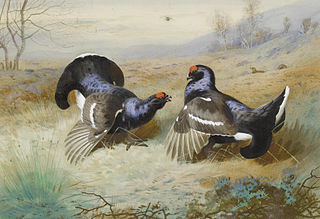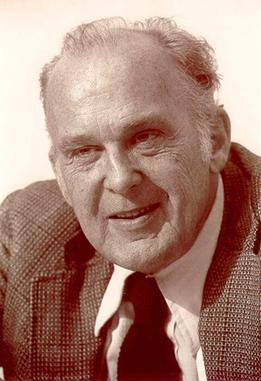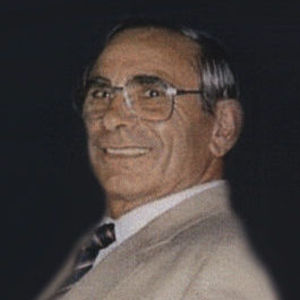Related Research Articles
Evolutionary psychology is a theoretical approach in psychology that examines cognition and behavior from a modern evolutionary perspective. It seeks to identify human psychological adaptations with regards to the ancestral problems they evolved to solve. In this framework, psychological traits and mechanisms are either functional products of natural and sexual selection or non-adaptive by-products of other adaptive traits.

Edward Osborne Wilson was an American biologist, naturalist, ecologist, and entomologist known for developing the field of sociobiology.
Sociobiology is a field of biology that aims to explain social behavior in terms of evolution. It draws from disciplines including psychology, ethology, anthropology, evolution, zoology, archaeology, and population genetics. Within the study of human societies, sociobiology is closely allied to evolutionary anthropology, human behavioral ecology, evolutionary psychology, and sociology.
Zoology is the scientific study of animals. Its studies include the structure, embryology, classification, habits, and distribution of all animals, both living and extinct, and how they interact with their ecosystems. Zoology is one of the primary branches of biology. The term is derived from Ancient Greek ζῷον, zōion ('animal'), and λόγος, logos.

The Selfish Gene is a 1976 book on evolution by ethologist Richard Dawkins, in which the author builds upon the principal theory of George C. Williams's Adaptation and Natural Selection (1966). Dawkins uses the term "selfish gene" as a way of expressing the gene-centred view of evolution, popularising ideas developed during the 1960s by W. D. Hamilton and others. From the gene-centred view, it follows that the more two individuals are genetically related, the more sense it makes for them to behave cooperatively with each other.

Group selection is a proposed mechanism of evolution in which natural selection acts at the level of the group, instead of at the level of the individual or gene.

Sociobiology: The New Synthesis is a book by the biologist E. O. Wilson. It helped start the sociobiology debate, one of the great scientific controversies in biology of the 20th century and part of the wider debate about evolutionary psychology and the modern synthesis of evolutionary biology. Wilson popularized the term "sociobiology" as an attempt to explain the evolutionary mechanics behind social behaviour such as altruism, aggression, and the nurturing of the young. It formed a position within the long-running nature versus nurture debate. The fundamental principle guiding sociobiology is that an organism's evolutionary success is measured by the extent to which its genes are represented in the next generation.
Robert Ludlow "Bob" Trivers is an American evolutionary biologist and sociobiologist. Trivers proposed the theories of reciprocal altruism (1971), parental investment (1972), facultative sex ratio determination (1973), and parent–offspring conflict (1974). He has also contributed by explaining self-deception as an adaptive evolutionary strategy and discussing intragenomic conflict.
Evolutionary ethics is a field of inquiry that explores how evolutionary theory might bear on our understanding of ethics or morality. The range of issues investigated by evolutionary ethics is quite broad. Supporters of evolutionary ethics have argued that it has important implications in the fields of descriptive ethics, normative ethics, and metaethics.

Donald Thomas Campbell was an American social scientist. He is noted for his work in methodology. He coined the term evolutionary epistemology and developed a selectionist theory of human creativity. A Review of General Psychology survey, published in 2002, ranked Campbell as the 33rd most cited psychologist of the 20th century.
Dual inheritance theory (DIT), also known as gene–culture coevolution or biocultural evolution, was developed in the 1960s through early 1980s to explain how human behavior is a product of two different and interacting evolutionary processes: genetic evolution and cultural evolution. Genes and culture continually interact in a feedback loop: changes in genes can lead to changes in culture which can then influence genetic selection, and vice versa. One of the theory's central claims is that culture evolves partly through a Darwinian selection process, which dual inheritance theorists often describe by analogy to genetic evolution.
Cultural selection theory is the study of cultural change modelled on theories of evolutionary biology. Cultural selection theory has so far never been a separate discipline. However it has been proposed that human culture exhibits key Darwinian evolutionary properties, and "the structure of a science of cultural evolution should share fundamental features with the structure of the science of biological evolution". In addition to Darwin's work the term historically covers a diverse range of theories from both the sciences and the humanities including those of Lamark, politics and economics e.g. Bagehot, anthropology e.g. Edward B. Tylor, literature e.g. Ferdinand Brunetière, evolutionary ethics e.g. Leslie Stephen, sociology e.g. Albert Keller, anthropology e.g. Bronislaw Malinowski, Biosciences e.g. Alex Mesoudi, geography e.g. Richard Ormrod, sociobiology and biodiversity e.g. E.O. Wilson, computer programming e.g. Richard Brodie, and other fields e.g. Neoevolutionism, and Evolutionary archaeology.

On Human Nature is a book by the biologist E. O. Wilson, in which the author attempts to explain human nature and society through sociobiology. Wilson argues that evolution has left its traces on characteristics such as generosity, self-sacrifice, worship and the use of sex for pleasure, and proposes a sociobiological explanation of homosexuality.
Evolutionary psychology seeks to identify and understand human psychological traits that have evolved in much the same way as biological traits, through adaptation to environmental cues. Furthermore, it tends toward viewing the vast majority of psychological traits, certainly the most important ones, as the result of past adaptions, which has generated significant controversy and criticism from competing fields. These criticisms include disputes about the testability of evolutionary hypotheses, cognitive assumptions such as massive modularity, vagueness stemming from assumptions about the environment that leads to evolutionary adaptation, the importance of non-genetic and non-adaptive explanations, as well as political and ethical issues in the field itself.
Universal Darwinism, also known as generalized Darwinism, universal selection theory, or Darwinian metaphysics, is a variety of approaches that extend the theory of Darwinism beyond its original domain of biological evolution on Earth. Universal Darwinism aims to formulate a generalized version of the mechanisms of variation, selection and heredity proposed by Charles Darwin, so that they can apply to explain evolution in a wide variety of other domains, including psychology, linguistics, economics, culture, medicine, computer science, and physics.

Joseph Lopreato was a sociobiologist, a social theorist, and a professor of sociology. After receiving his Ph.D. from Yale University (1960) he taught and lectured at various universities in the US and abroad, and published a dozen books and monographs plus numerous papers in several languages. He died in Georgetown, Texas, on March 25, 2015, and is buried in Austin, Texas.
Joseph Carroll is a scholar in the field of literature and evolution. He received his PhD in Comparative Literature from the University of California, Berkeley and is now Curators’ Distinguished Professor Emeritus at the University of Missouri–St. Louis.

Biosocial criminology is an interdisciplinary field that aims to explain crime and antisocial behavior by exploring biocultural factors. While contemporary criminology has been dominated by sociological theories, biosocial criminology also recognizes the potential contributions of fields such as behavioral genetics, neuropsychology, and evolutionary psychology.
Cultural evolution is an evolutionary theory of social change. It follows from the definition of culture as "information capable of affecting individuals' behavior that they acquire from other members of their species through teaching, imitation and other forms of social transmission". Cultural evolution is the change of this information over time.
Reciprocal altruism in humans refers to an individual behavior that gives benefit conditionally upon receiving a returned benefit, which draws on the economic concept – ″gains in trade″. Human reciprocal altruism would include the following behaviors : helping patients, the wounded, and the others when they are in crisis; sharing food, implement, knowledge.
References
- ↑ Turner, Jonathan (2021), "Richard Machalek on Bringing Biology Back Into Sociology", Theoretical Sociology, Routledge, pp. 314–315, doi:10.4324/9781003141372-21, ISBN 978-1-003-14137-2 , retrieved 2024-04-19
- ↑ Lucal, Betsy (2010). "Better Informed, Still Skeptical: Response to Machalek and Martin". Teaching Sociology. 38 (1): 46–49. doi:10.1177/0092055X09354076. ISSN 0092-055X.
- ↑ "gifts and scholarships | sociology | university of wyoming". UWYO Department of Criminal Justice and Sociology. Retrieved 2024-04-19.
- ↑ "UW Lecture Offers Rare Opportunity". UWYO News. Retrieved 2024-04-19.
- ↑ "The Man Who Found That "Genes Hold Culture on a Leash"". Discover Magazine. Retrieved 2024-04-19.